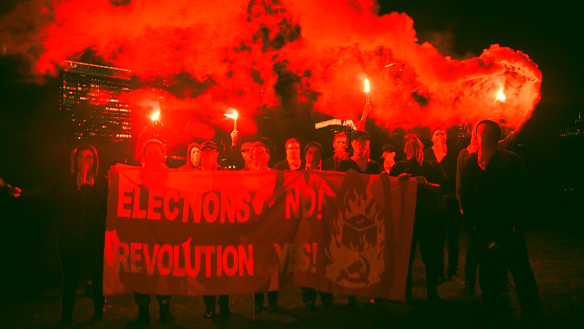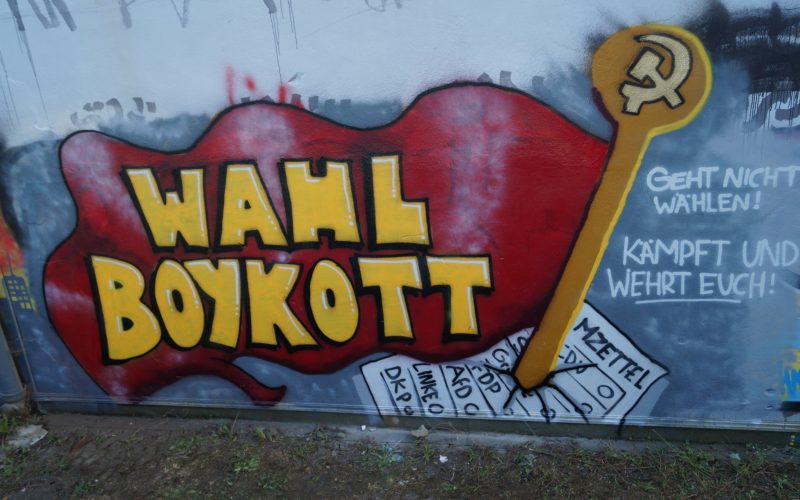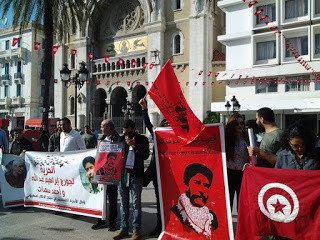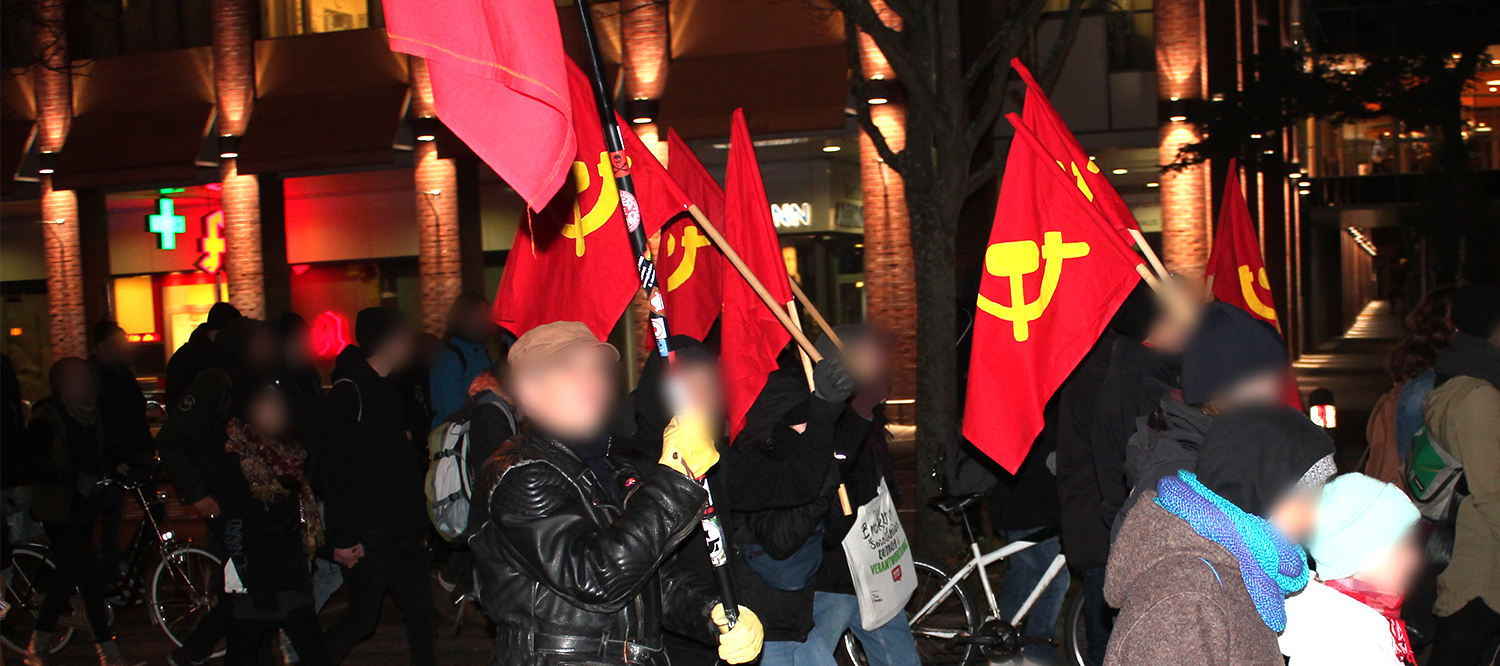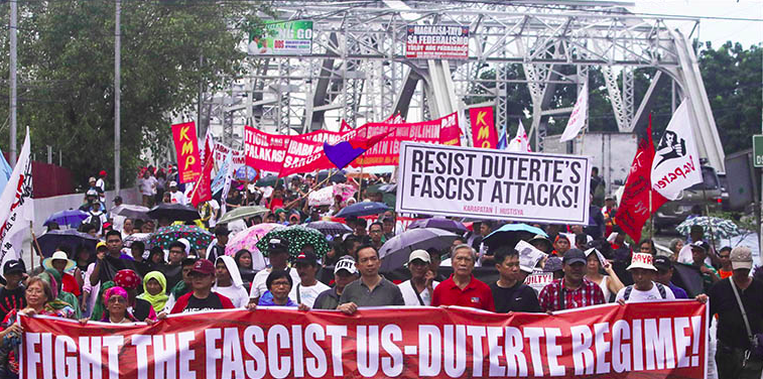DEM VOLKE DIENEN
- Details
- Nordamerika
Election Boycott in the USA
The midterm-elections in the USA are over, and no big surprises took place. Some states have been won by the one, some by the other bourgeois reactionary party. We also share the evaluation of the Comrades of the Red Guards Austin: „The masses already know that bourgeois politics are a dead end; this is a great development which indicates good conditions for building the revolutionary movement.“
- Details
- Proletarischer Feminismus
100 years of women‘s suffrage in Germany
Everywhere at train stations and other public spaces for advertisement one can find posters with slogans like “100 years women‘s suffrage and what are you fighting for?”. Because on 12th of November the German bourgeois state is celebrating the 100th anniversary of women‘s suffrage. Surely, when women were not allowed to vote it was justified to struggle for the demand of women’s suffrage. What the bourgeoisie is doing now is to take the women’s suffrage which was conquered in Germany by communists like Clara Zetkin – but also by liberal women from the petty-bourgeoisie – as an occasion to propagate the bourgeois democracy and the ruling system and to keep proletarian women from organizing themselves properly for their own interests.
- Details
- Lateinamerika
Revolution is not an adventure trip
After leaving school, it is almost compulsory for petty-bourgeois graduates to go abroad for a year in petty-bourgeois circles to "find themselves". Work and Travel in Australia or Au-pair in the USA are no longer the favorite destination of European young adults. Rather, "exotic" countries in Latin America or Southeast Asia are now preferred. Because in the semi-colonies and semi-feudal countries of this world, you can really learn something for life, for example to value the "simplicity" (besides, one can experience much more for little money than in imperialist countries). If they also help in social projects, then there is also something well done for the reassurance of the bad conscience that may overcome some who have grown up in the imperialist nations. Of course, such a year abroad is also outstanding in the CV. Not to mention all the great pictures in front of a picturesque backdrop. Of course, this "simplicity" is actually the harsh reality of the most oppressed and exploited peoples in the world. And of course, profit is being squeezed out of it. In Peru, a trip to the Machu Picchu becomes an adventure trip when the tour groups are “allowed” to experience poverty in Inca villages on their way there. Locals will even sale a couple of their products and serve as cheap hotels, which will then give the tour operator the title "social project". Because according to the Hamburger Abendblatt, "both sides benefit from this". But at the end of the day there is nothing romantic about being watched by some backpackers while fearing for their very existence every day and not having enough money to satisfy the most basic needs. In truth, the local people are only kept in economic dependence on foreign visitors. Just as the oppressed nations are held dependent on the imperialists. And against that the people will rise.
- Details
- Afrika
Manifestation for the liberation of Georges Ibrahim Abdallah in Tunisia
Activists in Tunisia made a manifestation for the liberation of Georges Ibrahim Abdallah in front of the France embassy in Tunis. They supported the international week from 17th until 24th of October. Georges Ibrahim Abdallah is one of the longest in-jailed political prisoner in the world. He dedicated his life to the justified struggle for the liberation of Palestine. The French imperialist state still holds him in-jailed and within shows it‘s weakness to the anti-imperialist and Palestinian movement.
- Details
- Europa
Let us grasp the teachings of the proletariat, let us strengthen our efforts for the reconstitution of the Communist Party of Germany
We publish a Statement of the Editorial Staff of the Magazine Klassenstandpunkt on the occasion of 100 years of the November Revolution as well as pictures of a demonstration on this occasion which took place in Kiel:
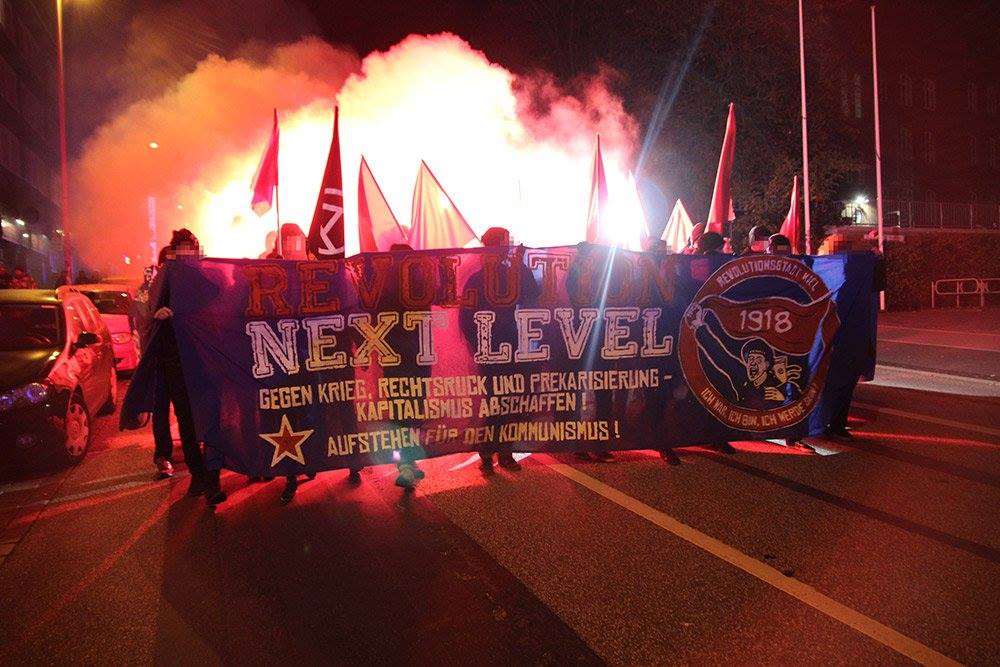
Let us grasp the teachings of the proletariat, let us strengthen our efforts for the reconstitution of the Communist Party of Germany
- Details
- Asien
Jagdalpur Legal Aid Group Condemns The Arrest of Advocate Sudha Bharadwaj
We forward a statement signed by Jagdalpur Legal Aid Group and Collective, which was also published in Dazibao Rojo, condemning the arrest of Sudha Bharadwaj and the others that are being pursuited by the Indian state.
- Details
- Nordamerika
KANSAS CITY: Activists Mobilize to Boycott the Elections
"Last weekend local activists mobilized across different working class neighborhoods all over Kansas City to knock on doors to conduct surveys and to distribute anti-electoral propaganda.
While the capitalist media dominates the airwaves and encourages the masses to participate in the circus that is the midterm elections, supporters and members of Serve the People Kansas City (STP-KC) went to the masses to ask what the working class really felt about the elections.
- Details
- Asien
Protests against martial law in Philippines
Last Tuesday, around 15,000 people protested against the ongoing martial law on Mindanao. Martial law was imposed on the city of Marawi last May following attacks by an muslim-nationalist group. Since then, the displacement of hundreds of thousands of people, massive human rights violations and murders have been on the agenda. Martial law allows for arbitrary arrests. For this, the mere suspicion and it is also no judicial arrest warrant necessary to legitimize an arrest. Also, curfews and suspensions are imposed by public institutions under martial law.
